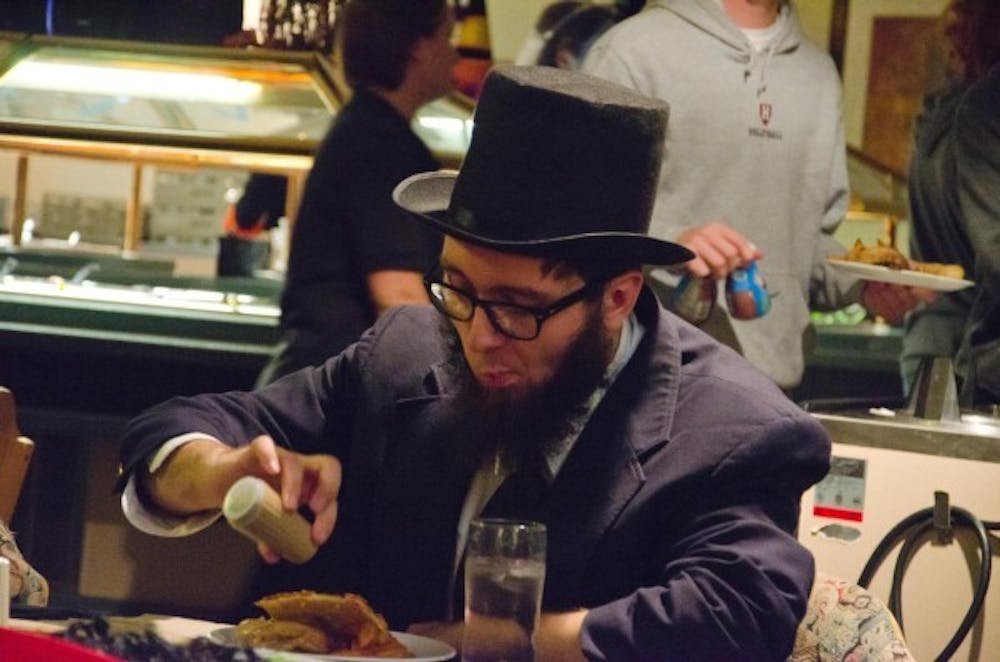Students ate by candlelight as a way to celebrate Halloween and to save energy Monday night.
The Ball State Energy Action Team and Dining Services sponsored Dinner in the Dark at The Retreat in Noyer Complex and America's Buffet in LaFollette Complex.
The purpose of the event was to raise awareness of personal energy consumption, BEAT adviser Stacy Wheeler said.
"Dinner in the Dark is a really neat event because I think it raises awareness of how much energy is typically consumed during every day events, like dining," Wheeler said.
BEAT member Megan Gish said one of the biggest ways students can cut electricity waste is by eliminating their use of "vampire" and "phantom" energy.
"What that is, is when you leave anything plugged in, and you're not using it, it's still using energy," she said. "So your television, or if you have your cell phone charger plugged in and your cell phone's not charging, that's vampire energy."
Wheeler said Dinner in the Dark attracted students because BEAT tied the meal in with Halloween.
"I think that's what BEAT's all about — trying to come up with fun initiatives that students can participate in and enjoy," Wheeler said.
Glow sticks, T-shirts, light bulbs and candy were among the give-aways at the event.
Tables were set up outside of the buffets so students could sign a pledge card and commit to reduce their energy use.
"I think it's really a testament [of] how excited students are getting, because instead of coming straight in here to go to dinner, they're standing in line for like 20 minutes to sign a pledge card, talking about what they're going to do to impact energy consumption at Ball State and realizing what kind of change they can make to affect the world," BEAT member Michelle Armand said.
Doing small things like turning the lights off and unplugging electronics that are not in use are easy ways for students to contribute to the overall effort of saving energy, Wheeler said.
"It's neat because I think that every day, simple things that you can do collectively have a big impact across the entire university if everyone does it," she said.
Armand said she hopes students will look at their glow sticks and remember what BEAT told them at Dinner in the Dark.
"You can stand outside all day telling people to turn out their lights, but it's helpful to frame it within fun events that get them to think about how what they're doing impacts the world," she said. "So even when they're dining in the dark, they're saving energy but they're having a good time."
Freshman music performance major Cecily Terhune said she is an advocate of saving energy because she believes it is important to protect the planet.
"It's very important to me because of all the environmental problems we have today," she said. "There's too much waste, and [we're] extracting too much energy, which also causes problems for our government."
Dinner in the Dark also publicized the Residence Hall Energy Challenge, which began Oct. 19 and ends Nov. 16. This is the third semester BEAT has put on the event.
BEAT will take a reading of each residence hall's energy usage and post the results each week. The overall winner who used the least amount of energy will receive a lamp trophy, made from a Goodwill lamp, and a pizza party at the Student Recreation & Wellness Center.
Gish said the goal is to always reduce energy use by 10 percent.
"We've been looking for a lot of different events to help promote it and how we can foster connections across campus," she said.



